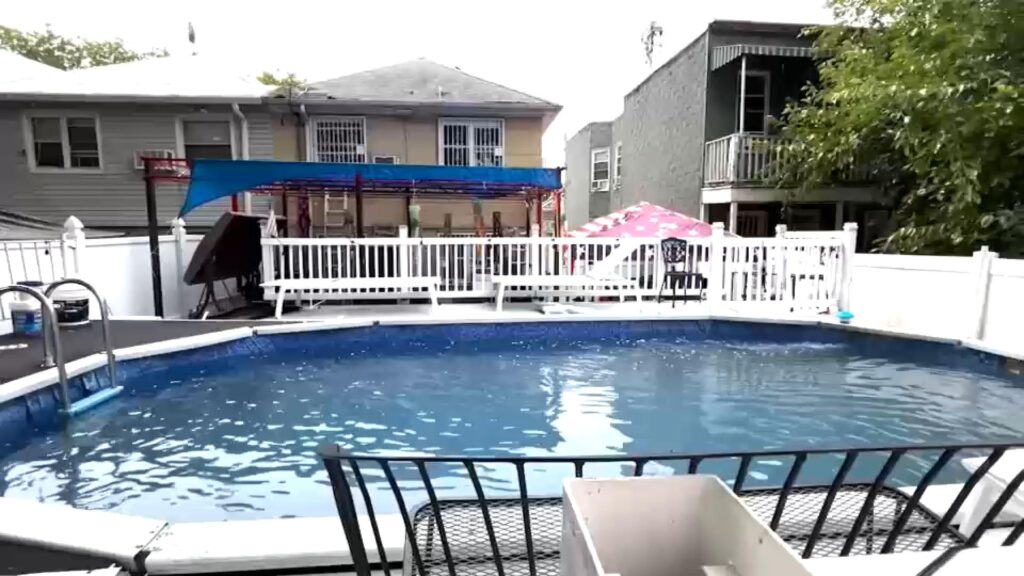Governor Torres Introduces River’s Law to Eliminate Swimming Pools in Residential Daycares for Enhanced Child Safety
Legislative Response to a Heartbreaking Drowning Incident
Following a devastating drowning tragedy involving a toddler at a home-based daycare, Governor Torres has proposed River’s Law, a groundbreaking bill designed to ban swimming pools in all residential childcare settings. This legislation aims to drastically reduce the risk of water-related accidents by removing one of the most dangerous elements found in private daycare environments. The initiative reflects a growing public demand for stricter safety regulations and heightened accountability in residential childcare operations.
Core Components of River’s Law: Strengthening Safety Protocols
The bill outlines several critical safety mandates that would take effect immediately upon enactment, including:
- A total ban on swimming pools and similar water installations at residential daycare locations
- Mandatory biannual safety inspections conducted by local regulatory agencies
- Compulsory emergency preparedness and CPR certification for all childcare providers
- Regular compliance reporting to licensing authorities to ensure ongoing adherence
| Safety Measure | Requirement |
|---|---|
| Swimming Pool Presence | Strictly prohibited in residential daycare settings |
| Facility Safety Audits | Conducted twice yearly |
| Staff Training | Mandatory emergency response and CPR certification |
| Regulatory Compliance | Ongoing reporting to licensing bodies |
Unpacking the Incident That Prompted the Ban
The tragic event that catalyzed this legislative push involved a young child who drowned in a swimming pool located at a residential daycare. The child was left unsupervised near the pool area for a brief but critical period before being found. Despite rapid intervention by emergency personnel, the child’s life could not be saved. This heartbreaking loss has spotlighted significant safety deficiencies in home-based childcare settings, particularly those with water hazards.
Investigations into the incident revealed several alarming oversights:
- Absence of secure fencing or childproof barriers around the pool
- Inadequate staff-to-child ratios, compromising effective supervision
- Lack of clearly defined emergency response procedures tailored to water emergencies
| Identified Issue | Consequences | Suggested Remedy |
|---|---|---|
| Insufficient Pool Barriers | Unrestricted child access to water | Install childproof fencing and secure gates |
| Low Supervision Levels | Delayed hazard recognition | Increase caregiver presence near water areas |
| Emergency Plan Deficiencies | Slower accident response times | Implement mandatory water safety and first aid training |
Enforcement and Penalties Under River’s Law
River’s Law enforces a comprehensive prohibition on swimming pools within residential daycare facilities, mandating their removal within a designated timeframe. Non-compliance will result in substantial fines and potential suspension or revocation of daycare licenses. The legislation also requires secure fencing and gate installations around outdoor play areas to prevent unsupervised access to any water hazards.
Local authorities will be empowered to perform surprise inspections to ensure adherence. Additionally, a dedicated hotline will be established to enable community members to report unsafe conditions anonymously, fostering a collaborative approach to child safety.
| Violation | Penalty | Compliance Timeline |
|---|---|---|
| Swimming pool presence at daycare | Up to $10,000 fine plus mandatory removal | Within 30 days |
| Failure to install secure fencing | $5,000 fine | Within 15 days |
| Non-reporting of hazardous conditions | License suspension | Immediate |
Professional Guidance for Protecting Children in Daycare Environments
Child safety experts stress the importance of rigorous supervision and robust safety measures in daycare settings, especially around water hazards. Key recommendations include:
- Comprehensive safety and emergency response training for all childcare staff
- Installation of secure, childproof barriers around any water features
- Strict policies prohibiting unsupervised access to pools or water-containing areas
- Regularly scheduled emergency drills focusing on water rescue techniques
- Use of alarms or motion detectors near water zones to provide immediate alerts
Experts also advocate for prioritizing child safety over recreational amenities in residential daycare settings. The removal of swimming pools, as proposed by River’s Law, aligns with these safety-first principles. The following comparison highlights the stark differences in risk and responsibility:
| Safety Factor | With Pool | Without Pool |
|---|---|---|
| Drowning Risk | Significantly elevated | Substantially reduced |
| Supervision Demands | Constant, intensive monitoring required | Standard supervision levels suffice |
| Emergency Preparedness | Frequent, specialized training necessary | Basic emergency readiness adequate |
| Liability and Costs | Higher risk and insurance costs | Lower risk and reduced expenses |
Looking Ahead: The Impact of River’s Law on Childcare Safety
As the community continues to grieve the loss of a young life, the introduction of River’s Law represents a pivotal move toward safeguarding children in residential daycare settings. By outlawing swimming pools in these environments, the legislation aims to significantly reduce preventable accidents and provide families with greater assurance regarding their children’s safety. As the bill progresses through the legislative process, parents, caregivers, and policymakers will closely monitor its implementation and effectiveness in raising the standard of care for the most vulnerable.













